
CRE2 sponsors Research Working Groups (RWGs) to support research on questions of race and ethnicity. The goal of RWGs is to incubate and generate intellectual exchange, facilitate deeper and broader understandings of the research topic, and catalyze innovative ideas about the research area. RWGs may be designed to explore potential collaborations among the group members (e.g., for grants, monographs, anthologies, or conferences; to gain a foothold on the current state of a field and potential research, data, and knowledge gaps; to deepen understanding of and develop new vocabularies for current issues or scholarly literatures; or to do preliminary work in order to design a larger CRE2 proposal).
CRE2 sponsors two kinds of RWGs. The first consists of CRE2-initiated groups, based on topical themes that are updated biennially. The second type of RWG is scholar initiated. Although CRE2 provides templates for RWGs, scholars can propose alternate formats. CRE2 will provide RWGs financial support and meeting space. This includes:
- Assistance in securing a physical space in which the working group and its events can convene;
- Support for reasonable expenses up to $2,000 including reading materials, photocopies, refreshments, and assistance in publicizing the RWG deliverables;
- Up to $500 for a graduate student coordinator to assist with RWG coordination. Graduate students may be asked to: reserve rooms; schedule meetings; acquire materials; and provide research support. RWGs must follow University guidelines regarding the hourly rate for graduate students.
RWGs are valued for incubating ideas and generating debate and research about race and ethnicity. We see them as a helpful initial engagement with CRE2 and one that may help to build the teams and templates to make larger funding or other requests.
- Any CRE2 Faculty Affiliate may apply for an RWG. The composition of the team is set out below. Postdocs, graduate and professional students, and trainees are welcome to apply with a Faculty Affiliate sponsor.
- The RWGs may include part-time faculty at Washington University; students, postdocs, and trainees at Washington University; non-Washington University faculty and students; and St. Louis community members. A proposed list of RWG members will be submitted with the application and a final list with the final report.
- RWGs may be renewed one time, by demonstrating outcomes and submitting the requisite paperwork.
RWGs must be composed of at least three people, one of whom must be a CRE2 Faculty Affiliate at the time of the application, although preference may be given to more robust groups. RWGs may also include students, faculty members from other institutions, non-academic researchers and practitioners, and community members. The individuals who submit the application will be responsible for managing the group and submitting requisite updates and documentation.
RWGs would ideally meet twice a month, at a minimum once a month, for at least one semester. The group may continue for two semesters, after which groups may reapply for working group status up to one time.
The submission cycle for Research Working Groups is currently closed. Project award periods are for at least one semester. The group may continue for two semesters, after which groups may reapply for working group status up to one time.
Proposals must include the title of the working group; a complete list of all RWG members, including their CVs; a proposal (400 words) including a description of the goals of the RWG, frequency of meetings, planned outcomes, and what support from CRE2 is anticipated; and a proposed budget.
All RWG proposals that are approved for funding and involve the use of human subjects must obtain appropriate human subjects approval through the University’s Institutional Review Board before CRE2 funds are disbursed.
Awardees must submit an RWG End-of-Year Report:
- An end-of-year one-page report that details the group’s goals and accomplishments that will be included in the CRE2 archives and will help us evaluate our RWG initiative:
- Did you accomplish your stated goals? Why or why not? How did the RWG evolve?
- What did you find most beneficial about the RWG?
- What did you find most difficult or the least valuable about the RWG?
- A 200-word end-of-year summary showcasing RWG outcomes for the CRE2 website
Building community capacity for the study of health equity among Asian, Asian American, and Pacific Islander populations in the St. Louis Metropolitan Area
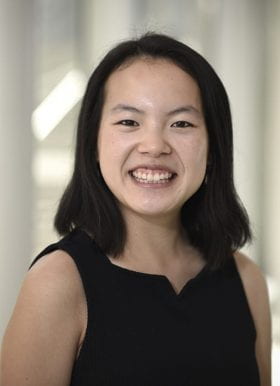
Bailey Martin-Giacalone
Postdoctoral Research Scholar, School of Medicine/ Department of Surgery
Cancer
Community engagement
Health equity
Medical humanities
Policy
Structural determinants of health
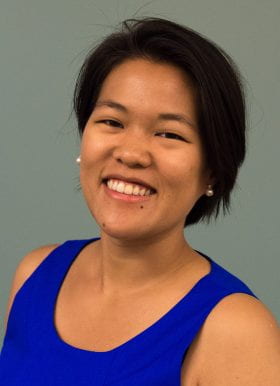
Sunny Lin
Assistant Professor, School of Medicine, Institute for Informatics, Center for Health Economics and Policy
- Email: linsc@nospam.wustl.edu
Quantitative methods
Population health
Health policy
Health information technology
Systems thinking
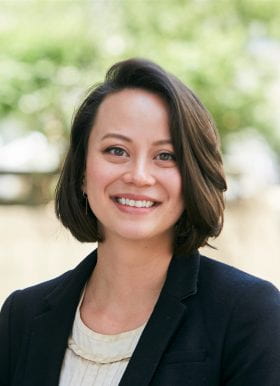
Caitlin McMurtry
Assistant Professor, Brown School
- Email: mcmurtry@nospam.wustl.edu
Firearm Deregulation
Health Disparities
Health Politics
Racial/Ethnic Discrimination
Policing
There are no research communities at WUSTL studying Asian, Asian American, and Pacific Islander (AAPI) health in the Midwest. While other academic institutions have dedicated AAPI health research centers (e.g., NYU Center for the Study of Asian American Health, Stanford Center for Asian Health Research), AAPI communities in the Midwest experience different intersectional identities, environments, acculturation patterns, and cultural considerations, all of which may pose unique challenges to health. Thus, an additional, concentrated effort is needed. The goal of this RWG is to organize a group of people who are committed to 1) building AAPI community capacity and 2) using community-based participatory research (CBPR) principles to study health equity for AAPI populations in St. Louis.
R3R i.e. Reproductive Justice, Health, Rights Roundtable
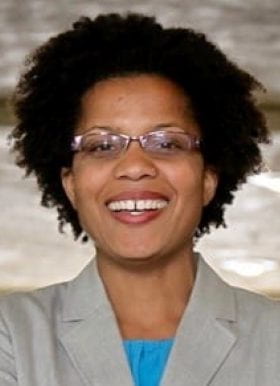
Zakiya Luna
Associate Professor; Dean’s Distinguished Professorial Scholar, Sociology
- Email: lunaz@nospam.wustl.edu
Black Feminism
Critical Race Theory
Feminist Theory
Human Rights
Intersectionality
Social Movements
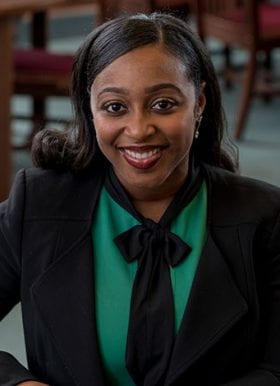
Tyriesa Howell
Assistant Professor at the Brown School
- Email: thhowell@nospam.wustl.edu
Health Disparities
Maternal Health
mHealth
Reproductive Justice
Sexuality Education
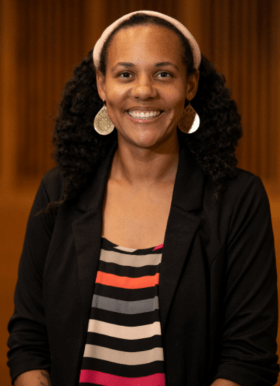
Seanna Leath
Assistant Professor, Psychological and Brain Sciences
- Email: leath@nospam.wustl.edu
Black Family Systems
Black Feminist Theory
Education
Gendered Racial Identity Development
Psychosocial Stress
Qualitative Methods
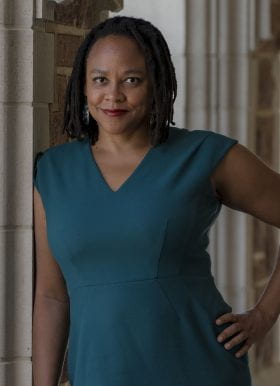
Rebecca Wanzo
Professor and Chair, Department of Women, Gender, and Sexuality Studies
- Email: rwanzo@nospam.wustl.edu
Feminist Theory, Popular Culture, Critical Race Theory, Affect
Reproductive justice” (RJ) has expanded into the mainstream lexicon, academic spaces
(e.g., courses and research centers, best-practice models) and even the United
Nations. However, the concept emerged from and is indebted to the embodied activism of women of color. In the 1990s, Black women were active in health care reform discussions that did not sufficiently address intersectional racialized, gendered, and class-based health disparities. During an Illinois pro-choice conference, a group of 12 Black women conceptualized a way to describe their reproductive goals beyond narrow “pro-choice” rhetoric that focused primarily on abortion access. Instead, they envisioned a world where all their reproductive and family planning choices could be supported; a world that fused reproductive health and rights with social justice. Since the inception of the RJ framework, other people of color, with disabilities, same-sex couples, young people and many others whose mere existence has been deemed a threat from traditional public health professionals, have increasingly rallied under this banner. R3 will draw on this rich history, and expertise both at and beyond WashU with the goal of launching a sustainable cross-school and cross-community endeavor.
Increasing Sustained Diversity in Alzheimer’s Disease Clinical trials
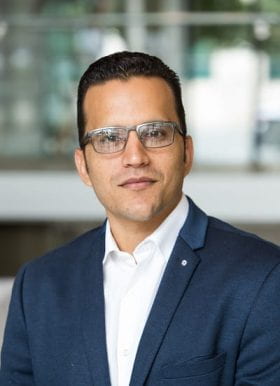
Jorge Llibre-Guerra
Assistant professor of Neurology
Education
Ethnicity
Neurodegeneration
Health Disparities
Risk factors
The mission of this working group is to provide guidance and
recommendations that enable and facilitate AD clinical trial participation of diverse communities. The overarching goal of the WG is to engage broad segments of the public in Alzheimer’s and related dementias research, with a particular focus on underrepresented communities and clinical trials. The group will examine existing ethical frameworks and evidence-based methods to improve successful and ethical recruitment, consent, and retention of diverse communities into ADRD clinical trials.
Mindfulness and Anti-Racism Working Group
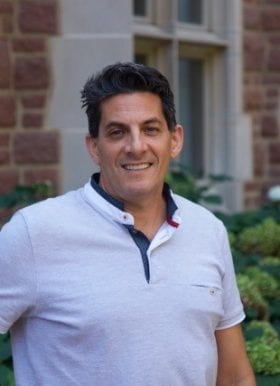
Todd Braver
Professor of Psychological and Brain Sciences
- Email: tbraver@nospam.wustl.edu
Mindfulness, Self-regulation, Psychological Well-being, Brain Function, Implicit Bias, Quantitative Methods, Data Science
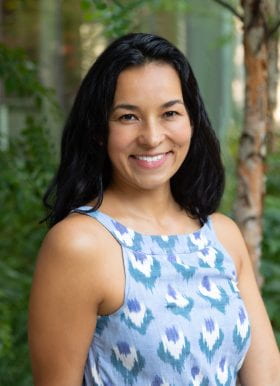
Diana Parra Perez
Associate Director, CRE²; Research Assistant Professor at the Brown School
- Email: parrad@nospam.wustl.edu
Community Programs, Health Equity, Health Disparities, Mindfulness, Physical Activity, Urban Environments, Yoga
Renewed for 2022, the WUSTL Mindfulness and Anti-Racism Working Group is an informal consortium of individuals who have come together to promote and expand mindfulness-related activities taking place at Washington University. The consortium involves five distinct cross-campus components: Research, Teaching/Education, Health & Wellness (for faculty/staff/students), Clinical/Therapeutic Interventions, and Community Outreach. This consortium is made possible through collaboration with the Washington University School of Medicine’s Mindfulness, Equity & Racial Justice working group.
Mindfulness and Anti-Racism Working Group

Todd Braver
Professor of Psychological and Brain Sciences
- Email: tbraver@nospam.wustl.edu
Mindfulness, Self-regulation, Psychological Well-being, Brain Function, Implicit Bias, Quantitative Methods, Data Science

Diana Parra Perez
Associate Director, CRE²; Research Assistant Professor at the Brown School
- Email: parrad@nospam.wustl.edu
Community Programs, Health Equity, Health Disparities, Mindfulness, Physical Activity, Urban Environments, Yoga
The WUSTL Mindfulness and Anti-Racism Working Group is an informal consortium of individuals who have come together to promote and expand mindfulness-related activities taking place at Washington University. The consortium involves five distinct cross-campus components: Research, Teaching/Education, Health & Wellness (for faculty/staff/students), Clinical/Therapeutic Interventions, and Community Outreach. This consortium is made possible through collaboration with the Washington University School of Medicine’s Mindfulness, Equity & Racial Justice working group.
Events for this Working Group in 2021:
Black Lives Matter Reading Group
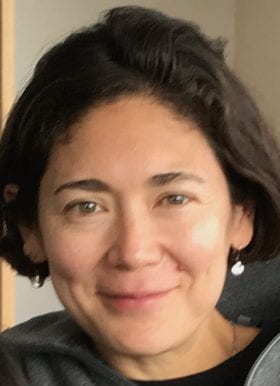
Stephanie Li
Former Lynne Cooper Harvey Distinguished Professor of English
American Literature
Blackness
Gender and Sexuality
Popular and Political Culture
Racial Representations
Whiteness
The goal of the Black Lives Matter Literature Research Working Group is to create a space where faculty, students, staff and community members interested in exploring contemporary writing concerning Black Lives Matter can meet to discuss and develop a vocabulary for talking about the literature of BLM. Specifically, we want to foster discussion about Black Lives Matter as a concept that unites literary, political, and historical debate across works and genres.